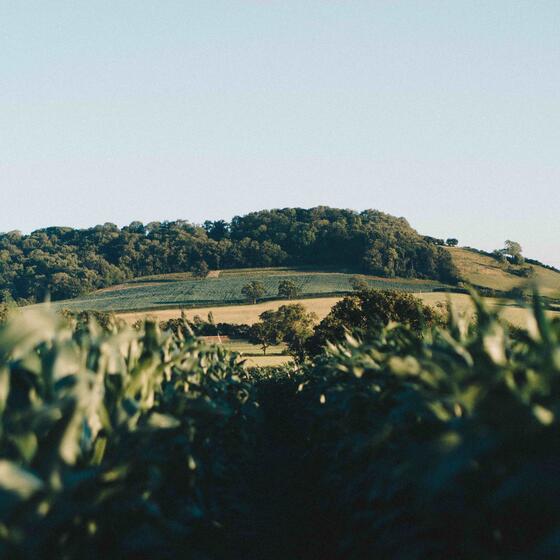Step into a rural English fantasy with a green and pleasant backdrop at this beautiful West Country estate
11 October, 2023
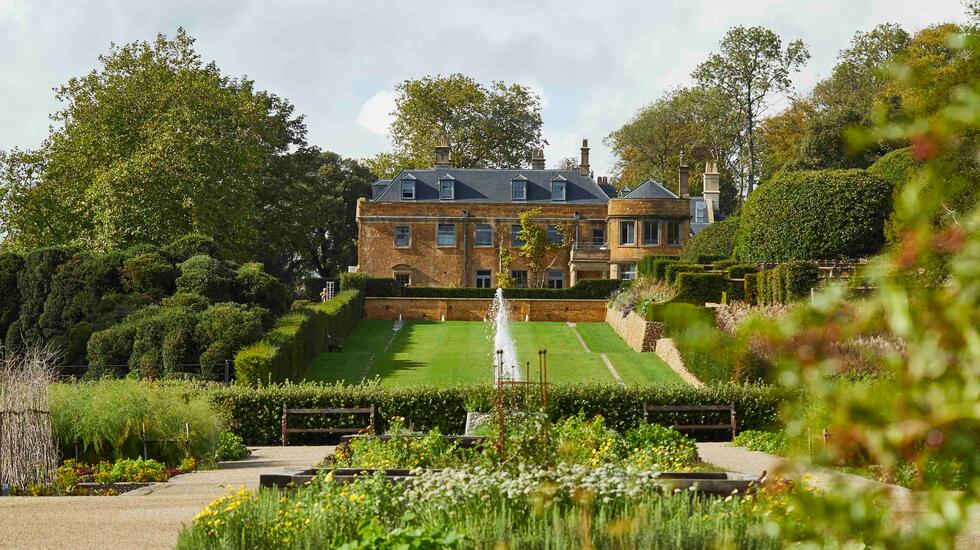
Set
amid more than 300 hectares of particularly pretty Somerset
countryside, The Newt is a working estate with productive gardens,
farmland and orchards.
Opened in 2019, it’s the second property from the married duo
behind South Africa’s sprawling Babylonstoren estate. Karen Roos and Koos
Bekker have transplanted their African success to England, creating
a magical, immersive Somerset countryside experience (with a
money-no-object ethos) in one of the UK’s most picturesque
counties. This is less a hotel, more a fantasy playground of
honey-hued farm buildings and pastoral landscapes. Picture a Jane
Austen protagonist’s country pile, if Mr Darcy had a penchant for
fine cyder, and enjoyed treatments in a rasul mud chamber.
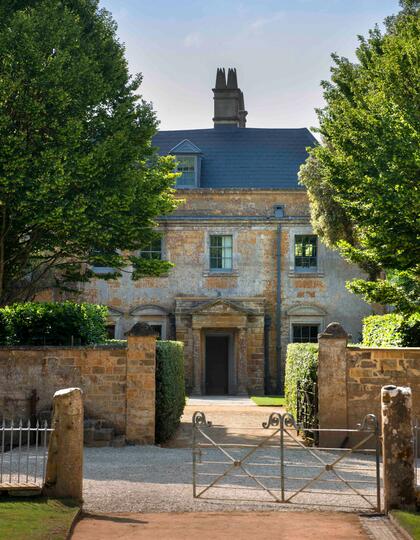
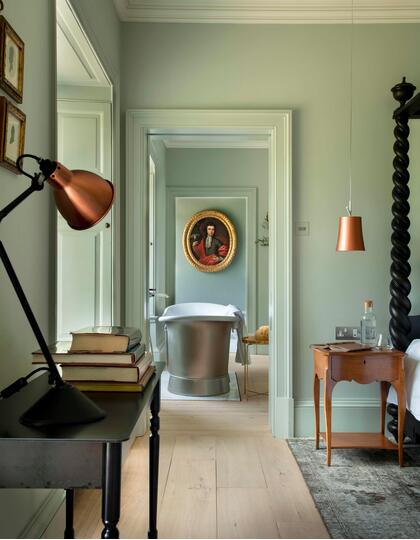
The beautiful estate is centred around Hadspen House, a
17th-century, Palladian-fronted beauty that has undergone several
renovations and extensions over the years, with various owners
adding their own touches to the house and grounds. The gardens –
complete with an orchard maze that’s home to 300 apple varieties,
and a kitchen garden supplying veg and herbs to the estate’s
restaurants – are a standout feature.
Laid-back, exclusive and charming. Interiors are the perfect
juxtaposition of old and new, with traditional period features and
an English country house-style ambience offset by contemporary
furnishings such as velvet, mid-century-inspired love seats and, in
some rooms, personal steam pods.
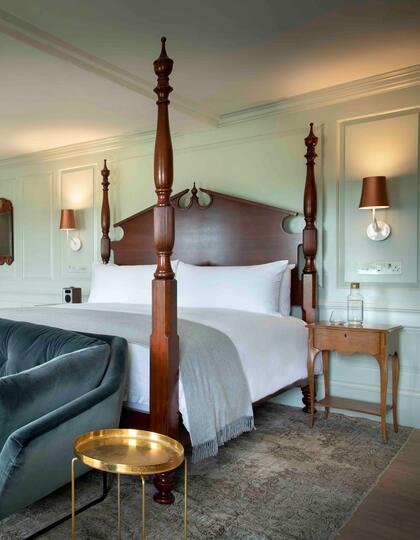
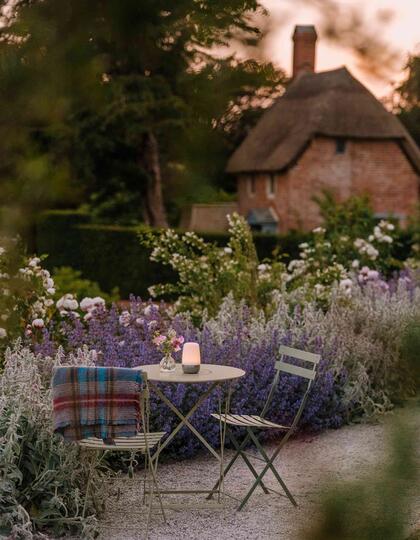
The impressive main building, Hadspen House, hides 13
individually designed suites behind honey-hued walls. In the Stable
Yard, a converted Georgian stable block, you’ll find 10 bedrooms.
Just beyond the apple orchards, a hop, skip and buggy-ride away
from the main house, lies the Farmyard, where we stayed. A
repurposed dairy farm, it houses a further 17 rooms. We loved our
made-for-sharing bathtub, which offered far-ranging views over the
Somerset hills, while the huge, wet-room-style waterfall shower in
the middle of the room felt utterly indulgent.
The waterproof ponchos and wellies lined up just outside our
room were a welcome (and necessary) addition to a Somerset stay, as
was the selection of classic children’s books – including The Very
Hungry Caterpillar and Goodnight Moon – which were left in our room
for our 18-month-old son.
There’s an à la carte offering of fresh pastries and fruit,
artisan breads and homemade preserves at both The Botanical Rooms
and the Farmyard Kitchen. For a heartier option, the cooked
breakfast menu includes all the usual classics – including the best
bacon we’ve ever tasted – with an emphasis on fresh, local and
seasonal ingredients.
The thing about being surrounded by farmland is that it makes
keeping food miles to a minimum extremely easy. At the estate’s
three restaurants, the focus is firmly on estate-to-plate eating.
Head to The Botanical Rooms for a fine-dining experience in a
sophisticated setting. Located in the main house, in a slick,
wood-panelled dining room with an open kitchen, its menu uses the
finest fresh ingredients, sourced from the estate and local
suppliers.
The glass-panelled Garden Café overlooking the kitchen gardens
has a more relaxed vibe, with a menu that celebrates the changing
seasons. The Farmyard Kitchen – located in the old threshing barn –
continues the farm-to-table theme, with wood-fired delights and
sharing platters cooked up in an open kitchen.
The estate’s tipple of choice? Home-brewed cyder, made with 100
per cent apple juice, and slow, cold fermented to release all
residual sweetness from the apples. Take a seat on a
sheepskin-strewn sofa in front of the wood-burning stove at the
Garner Bar, in the Farmyard, for complimentary cyders, spirits and
wines, whatever the hour. There are also cakes at teatime.
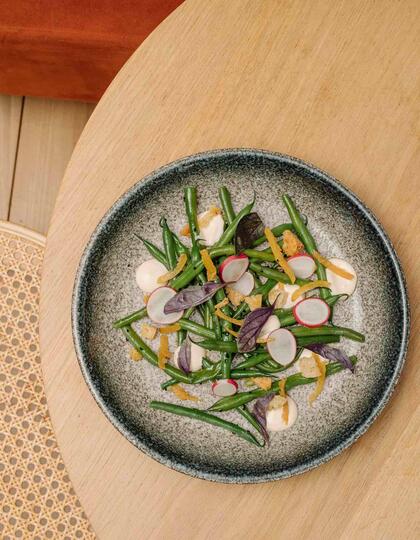
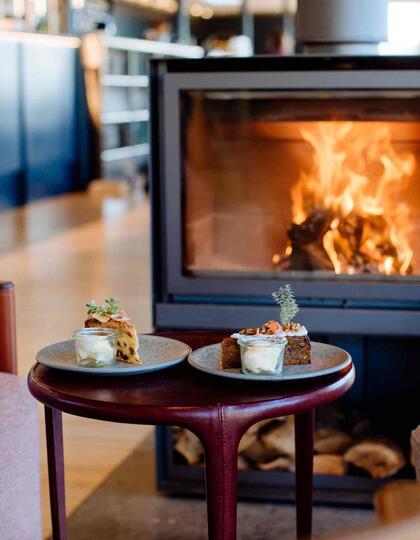
Almost too many to get your head around – or at least, to do so
in one weekend. Take a garden tour with one of the estate’s
green-thumbed experts; enjoy a cyder press experience under the
knowledgeable eye of the cellar master; explore the Beezantium – a
playful yet purposeful home for wild bee colonies – with bee
whisperer Paula; take your time in the farm shop, picking out
delicious produce from the estate itself, local suppliers, and from
the far-flung shores of South Africa and the estate’s sister
property, Babylonstoren; learn about the history of gardening via
the interactive Story of Gardening exhibition; soak up the history
at the Roman Villa experience, an informative museum and reimagined
Roman house in the grounds; leave a few hours for the spa, home to
a glass-panelled indoor pool, a party-sized hot tub, gym, hammam
and rasul mud chamber; and cut down on the time spent getting from
A to B by jumping in a golf buggy to pootle here, there and
everywhere, spotting geese and grazing livestock en route.
The estate’s gardeners employ a range of organic techniques to
promote sustainable agriculture, such as companion planting and
natural pest control methods. The estate also has its own water
treatment plant, which recycles water from its lakes and streams to
irrigate the gardens. Furthermore, the estate’s energy needs are
met by a combination of solar power, biomass boilers and heat
pumps.
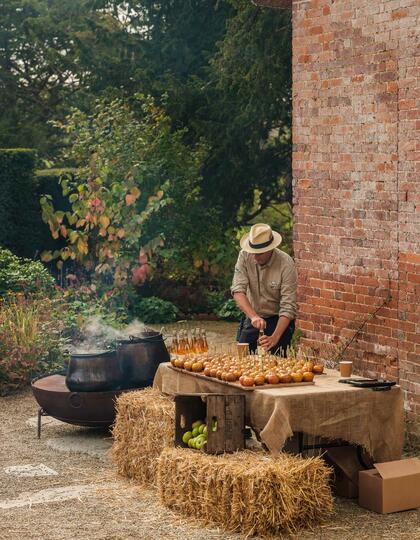
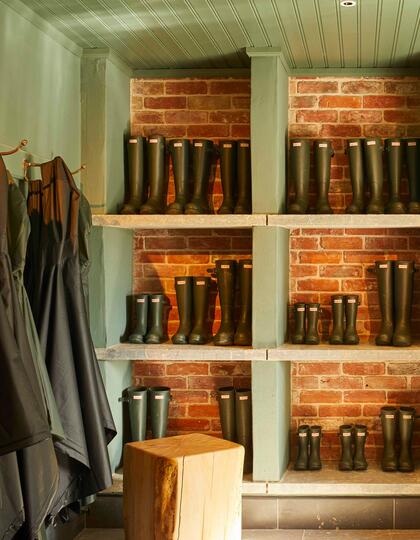
Photo credit: Jake Eastham
It’s not massively accessible. While there are two rooms that
are fully adapted for guests with disabilities, and the gardens are
accessible to wheelchairs, we found it quite tricky to manoeuvre
our son’s pram along the uneven pathways around the hotel and
gardens.
An eclectic mix: multigenerational families exploring the
gardens by day and well-heeled Londoners sipping on fine cyder in
the evenings.
Some of Somerset’s most beautiful towns. Nearby
Bruton is home to the internationally renowned
Hauser & Wirth gallery, and At The Chapel – a loved-by-locals
restaurant with its own artisan bakery. Artsy Frome is also a short drive away.
Note that, when booking, you may find the website deliberately
coy – leaving the individual character of each room as a surprise
for guests.
